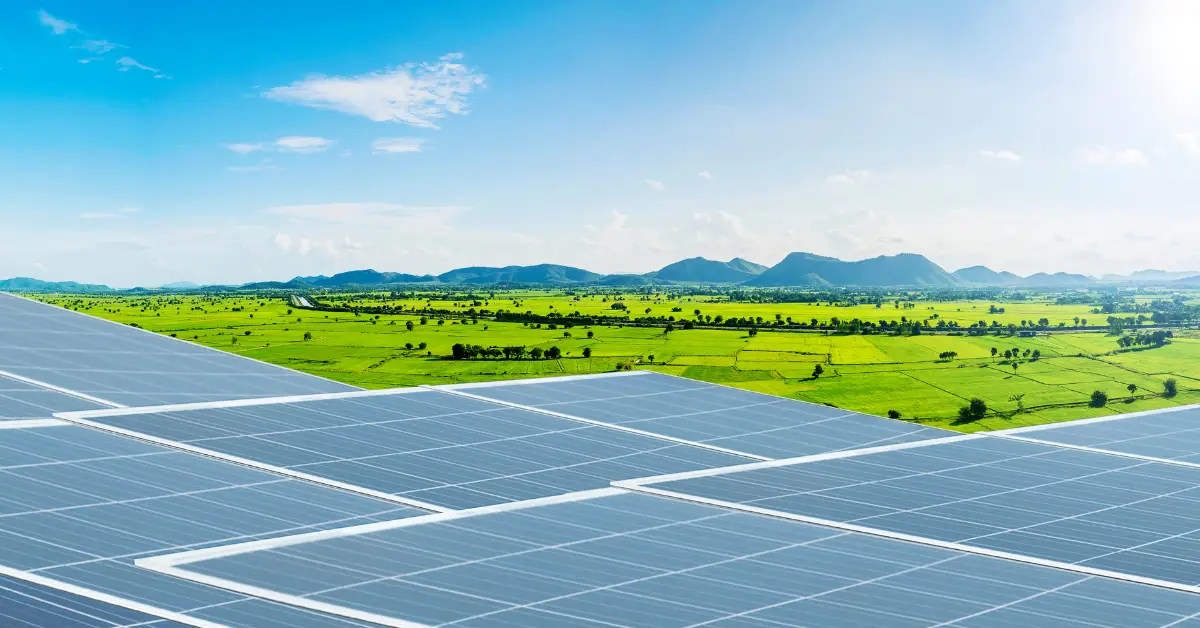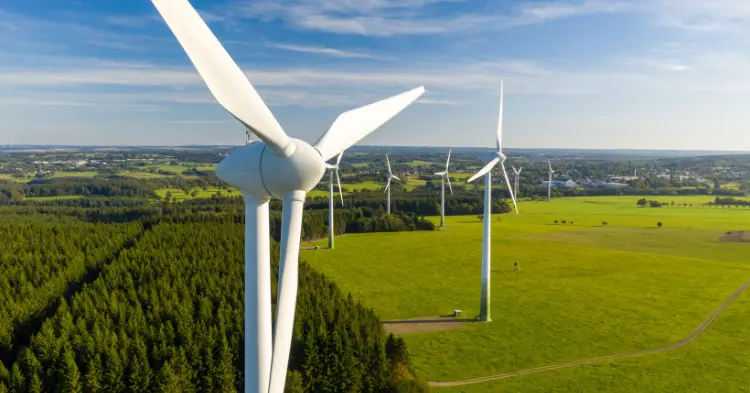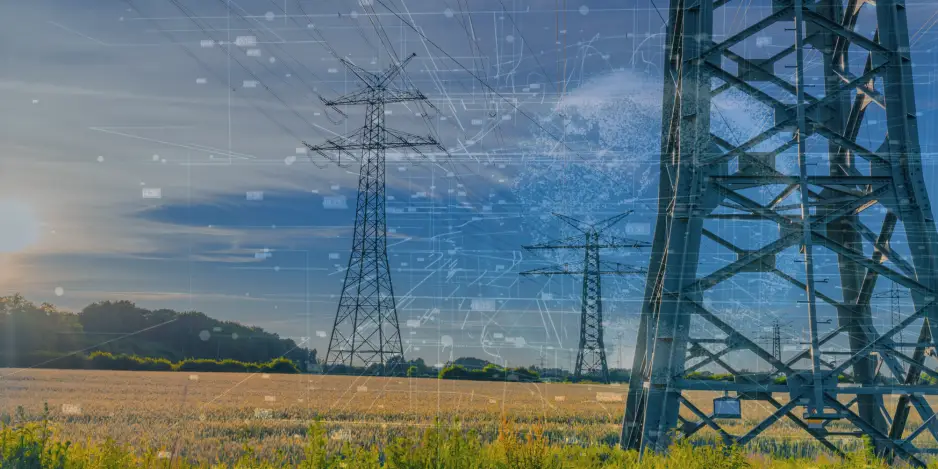With the energy sector responsible for nearly three-quarters of global emissions, shifting from fossil fuels to renewables like wind and solar is essential to avoiding the worst impacts of climate change.
Over 140 countries have pledged to reach net-zero emissions, driving a global energy transformation. Across the EU, companies are racing to modernise grid infrastructure, expand wind farms, and install solar panels. But with rising electricity demand and energy-intensive technologies like AI, the need to scale and secure energy infrastructure is more urgent than ever.
In the first quarter of 2025, 42.5% of the EU’s net electricity came from renewables, led by wind (42.5%), hydro (29.2%), and solar (18.1%). This share must continue to grow to meet the Paris Agreement targets of cutting emissions by 45% by 2030 and reaching net zero by 2050.
Success, however, relies not just on investment, but on expertise. Project managers, maintenance engineers, and installation specialists are vital to delivering renewable projects safely, on time, and within budget. Without access to this talent, even the most ambitious initiatives risk delays, rising costs, and underperformance.
Finding skilled energy professionals remains a major challenge, especially for companies without access to an international talent pool.
So, how is the growing skills gap shaping the future of energy, and how can companies attract and retain the talent needed to power the transition?
Growing Energy Skills Gaps and Staff Shortage
Staff Shortage
The energy transition has accelerated the demand for skilled energy personnel, leading to severe staffing shortages. Jobs in renewable energy are growing faster than the number of available experts. In sectors critical to the energy transition, such as manufacturing, energy supply, and scientific and technical activities, vacancy rates in the EU have even doubled between 2020 and 2023.
By 2030, the energy transition and the expansion of EU manufacturing capacity could create a demand for over one million new jobs. The need for heat pumps and solar photovoltaic installations has especially increased in recent years, driving strong demand for installers, plumbers, and electricians. Here is a list of the most needed jobs in renewable energy in which Amoria Bond can support you:
Supervision, Corporate Organisation and Strategy (e.g. Project Manager)
Construction Electrical Systems (e.g. Electrical Engineer)
Renewable Energy Technology Specialists (Power Grid Expert)
Sales Specialists (e.g. Sales Representative)
Electrical Operating Technology Specialists (e.g. Maintenance Manager)
Technical Research and Development Experts (e.g. Engineers)
This shortage is driven by several factors, including digitalisation, the net zero target, and the ageing energy workforce, which has resulted in a smaller and less accessible candidate pool. Consequently, companies must adopt more creative and proactive strategies to fill job vacancies. This includes investing in training and development programmes, widening their recruitment efforts to international markets, and embracing new technologies to attract and retain talent. Without such measures, the energy sector risks facing continued delays in delivering critical projects essential to meeting climate goals.
Skills Gap
Energy supply and manufacturing are among the sectors with the highest demand for upskilling, particularly in technical and job-specific areas. This is largely driven by digitalisation, automation, and rapid technological change.
In the renewable energy sector, finding specialists with the right expertise is especially challenging. Many roles require niche technical knowledge that is not widely taught or easily transferable, even from within the broader energy industry. According to the World Energy Employment 2024 survey, 40% of respondents frequently hire from other energy sectors. However, workers from fossil fuel backgrounds often need additional training or re-skilling before they can transition into renewable energy roles, making recruitment even more difficult for hiring managers seeking specialised talent.
The survey also revealed that nearly 40% of respondents found installation and repair roles the hardest to fill, followed by over 20% who reported difficulties hiring for management and professional positions.
As of 2023, around 36% of energy jobs were high-skilled, typically requiring a university degree. Another 51% were medium-skilled roles, needing vocational or technical training. Many of the most pressing shortages, such as electricians and welders, fall into this category. Only 13% of the workforce is considered low-skilled, with such roles mainly concentrated in emerging economies, as automation has reduced their presence in advanced markets. The most needed skills in the energy sector are:
Electrical Engineering & High Voltage Expertise
Especially critical in transmission & distribution, grid integration, renewable power systems, and smart grids.
Digitalisation & Data Analysis
Skills in data science, cybersecurity, AI, and digital twin technology are essential across all renewable sectors (e.g., PV, wind, batteries).
Systems Integration & Sector Coupling
Ability to integrate electricity with gas, heating, and cooling systems, including planning, operation, and optimisation of multi-energy grids.
Project Management for Complex Energy Projects
Strong demand for cross-functional project managers with experience in renewable infrastructure and regulatory frameworks.
Installation, Operation & Maintenance (O&M)
Hands-on technicians and service engineers are urgently needed for solar PV, wind, biomass, and geothermal systems.
Battery & Energy Storage Technology
Expertise in battery cell/module production, recycling, safety, and system integration for EVs and stationary storage.
Engineering for Emerging Technologies
Including heat pumps, electrolysers (for hydrogen), fuel cells, and hybrid energy systems.
Manufacturing & Quality Assurance
Especially in solar, bioenergy, and battery sectors. Roles involve mechanical and electrical process oversight, testing, and certification.
Environmental & Sustainability Analysis
LCA (Life Cycle Assessment), circular economy design, regulatory compliance, and impact assessments for new technologies.
Soft Skills & Cross-Disciplinary Collaboration
Communication, teamwork, leadership, and innovation are consistently listed as essential to manage multidisciplinary projects and adapt to rapid change.

How to Attract and Retain Energy Talent
Unfilled vacancies in the renewable energy sector are placing mounting pressure on employees and organisations, often leading to reduced productivity, higher costs, and declining staff well-being. These issues contribute to increased turnover, with replacement costs, especially for executive roles, sometimes reaching up to twice an employee’s salary.
Beyond financial implications, overstretched teams face burnout and poor work-life balance, which not only drives further attrition but also diminishes service quality and customer satisfaction, ultimately damaging the company’s reputation.
Fortunately, there are several solutions companies can adopt to address skills and staffing shortages.
In-house Staffing Solutions
Renewable energy companies can address skills gaps by investing in targeted reskilling and upskilling programmes, particularly for workers transitioning from traditional energy sectors like oil and gas.
Collaborations with technical schools, universities, and training providers can help develop pipelines of talent equipped with the specific competencies needed for roles in solar, wind, and battery storage. Offering apprenticeships, certification-based training, and on-the-job learning can also accelerate workforce readiness while improving employee retention.
To tackle staff shortages, companies should expand their talent strategies beyond traditional full-time hiring. This includes tapping into freelancers for project-based roles, and embracing diverse hiring practices to attract underrepresented groups, including women and younger workers. Additionally, providing flexible working conditions and clear career development pathways can make the sector more attractive to new entrants.
Recruitment
Partnering with a recruitment organization can accelerate the hiring process and even be more cost efficient than in-house recruitment:
Faster access to qualified candidates in renewable energy, grid modernisation, and sustainability roles
Deep industry knowledge of certifications, safety standards, and energy-specific job requirements
Access to passive talent and international professionals not easily reached by in-house teams
Scalable support for project-based, seasonal, or location-specific energy hiring needs
Reduced recruitment costs and HR workload in a tight and rapidly evolving labour market
Improved compliance with labour laws, onboarding procedures, and industry-specific regulations
Companies can reallocate their in-house recruitment and HR costs to other business activities, maintaining energy project deadlines and securing project outcomes, while specialised recruiters focus fully on sourcing the best energy specialists for the company.

How Is Amoria Bond Different from Energy Recruitment Competitors?
At Amoria Bond, we go beyond traditional recruitment agencies that simply source candidates as quickly as possible. We do not offer superficial recruitment services with multiple points of contact or fixed packages. Instead, our best service lies in personalised and flexible 360° staffing solutions within the renewable energy sector, built on long-term partnerships.
This means companies receive full support throughout the entire hiring process, from screening to contract management, handled consistently by the same dedicated recruitment team.
Thanks to our extensive global energy talent pool, we can source passive candidates and international professionals with proven track records, for renewable energy projects or permanent roles of any size and complexity. Our recruitment specialists undergo comprehensive, award-winning training and possess deep knowledge of the latest renewable energy trends, enabling them to tailor their search for the best energy talent who are immediately available for short-term, long-term, or permanent positions.
Contact our global recruitment experts today to discuss your current or future staffing needs and secure the skilled professionals you need to hit your sustainability targets and help drive the transition to a net-zero future.






